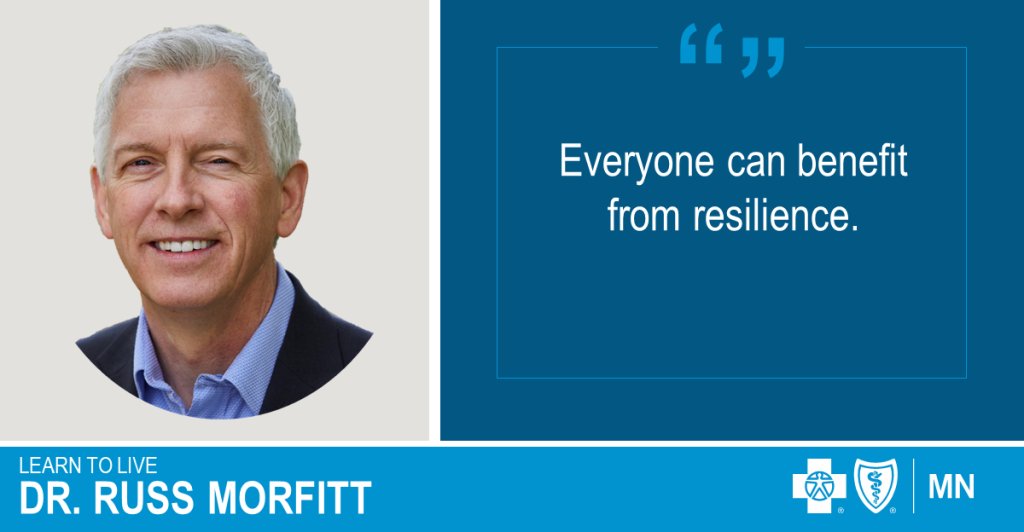Mental health resilience training now available through Learn to Live
August 8, 2023We all face challenges in this environment that can be difficult to navigate. If the stress of these challenges isn’t addressed, it can lead to mood and behavioral health issues such as depression, anxiety, or insomnia.

A survey conducted by The Harris Poll on behalf of the American Psychological Association found that more than three-quarters of adults (76%) said they have experienced a negative health impact due to stress in the prior month, including headaches, fatigue, or feelings of nervousness and sadness.
Severe stress can be triggered by a wide range of experiences, including:
- Conflict with others in leadership
- Caring for children or ailing family members
- Civil liberties distress
- An uncertain future
- Inflation and the economy
- Concerns over crime and safety
Learning to handle life’s challenges more efficiently and effectively is where resilience comes in. According to the American Psychological Association, psychological resilience is the process and outcome of successfully adapting to difficult or challenging life experiences, especially through mental, emotional, and behavioral flexibility and adjustment to external and internal demands.
Learn to Live, which offers customized online programs based on the proven principles of Cognitive Behavioral Therapy (CBT), has created a new educational program centered on resilience to help people do just that.
Why is resilience important?
Learn to Live, which already provided existing programs for those experiencing depression, anxiety, insomnia and other challenges, wanted to create a new program that could help reduce the risk of developing those conditions in the first place.

“Everyone can benefit from resilience,” says Dr. Russ Morfitt, co-founder and chief clinical officer at Learn to Live. “It’s our first program that provides participants, with or without symptoms of mental health problems, the tools to improve mental fitness. We think that’s really important.”
According to Dr. Morfitt, resilient individuals are more equipped to:
- Cope with the demands of everyday life
- Manage adversity
- Improve emotional well-being
- Build and keep strong relationships
- Think optimistically
- Be able to recover from setbacks
Learn to Live’s Resilience program includes eight lessons that help members overcome challenges in their work and personal lives and keep moving forward in life.
One of the lessons focuses on Present Awareness and learning to be more mindful and less distracted by everyday worries. This can help a person stay focused, making it more likely they will progress towards personal wellbeing goals.
“We want everyone to learn research-informed strategies that can help us look ahead at the day with confidence, in spite of the uncertain future, the potential for pain and disappointment, and inevitable obstacles ahead of us,” says Dr. Morfitt. “It’s the people who keep bouncing back who are successful and we want to equip more individuals to be those people.”
Learn more
Learn to Live offers a free resilience assessment to identify which stressors are affecting your life and how well you are equipped to overcome life's setbacks.
Get more information about Learn to Live at learntolive.com. To find out if the Resilience program is covered under your Blue Cross MN health plan, call the number on the back of your member ID card or visit bluecrossmnonline.com to review your offerings.



